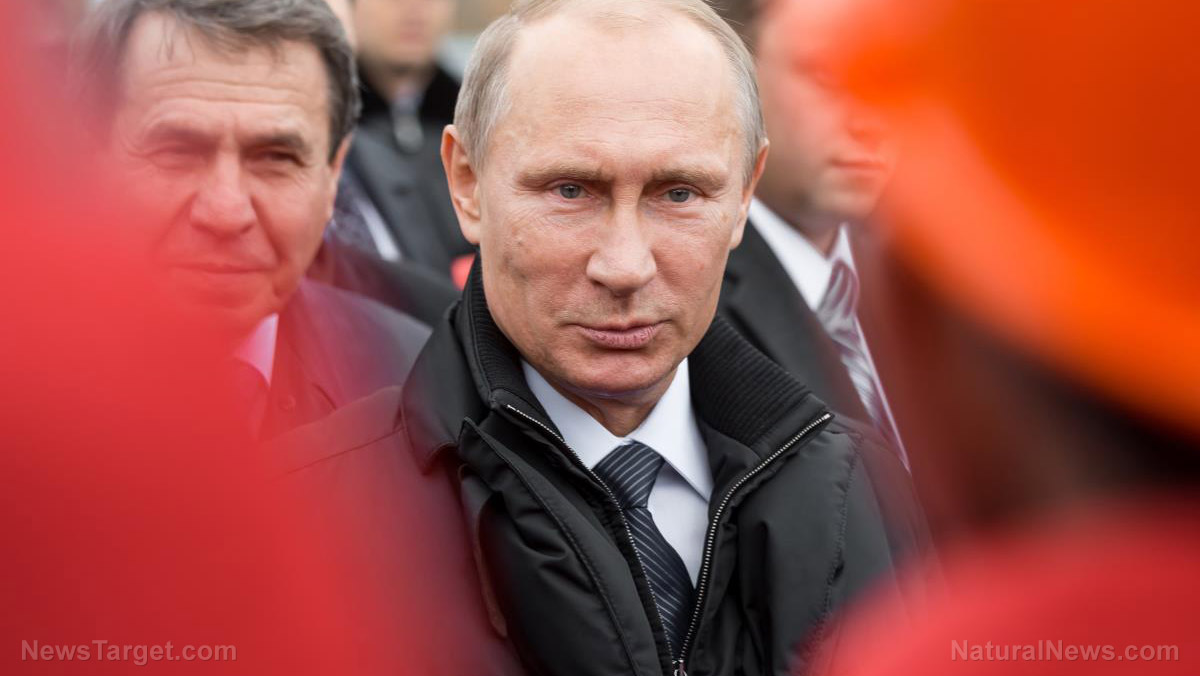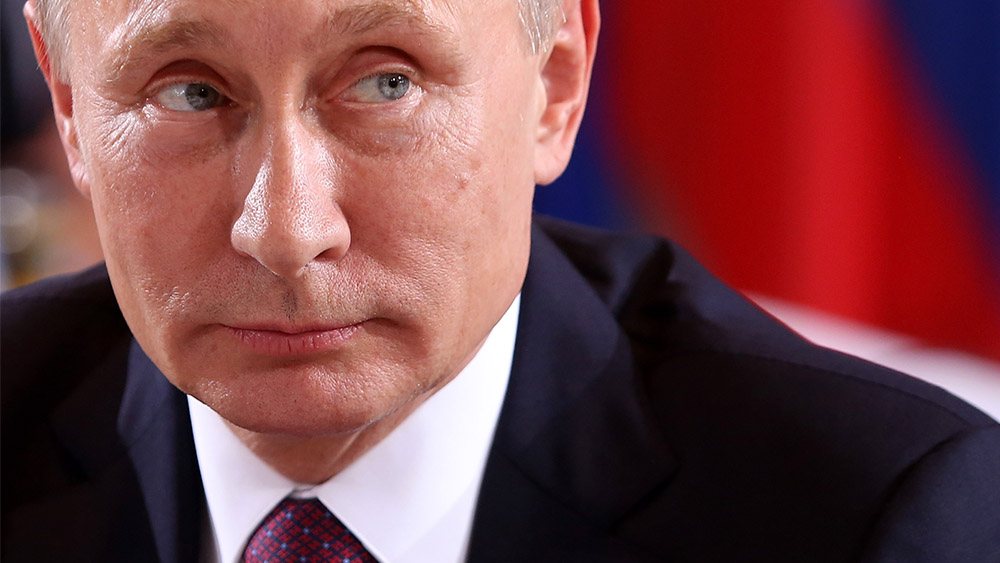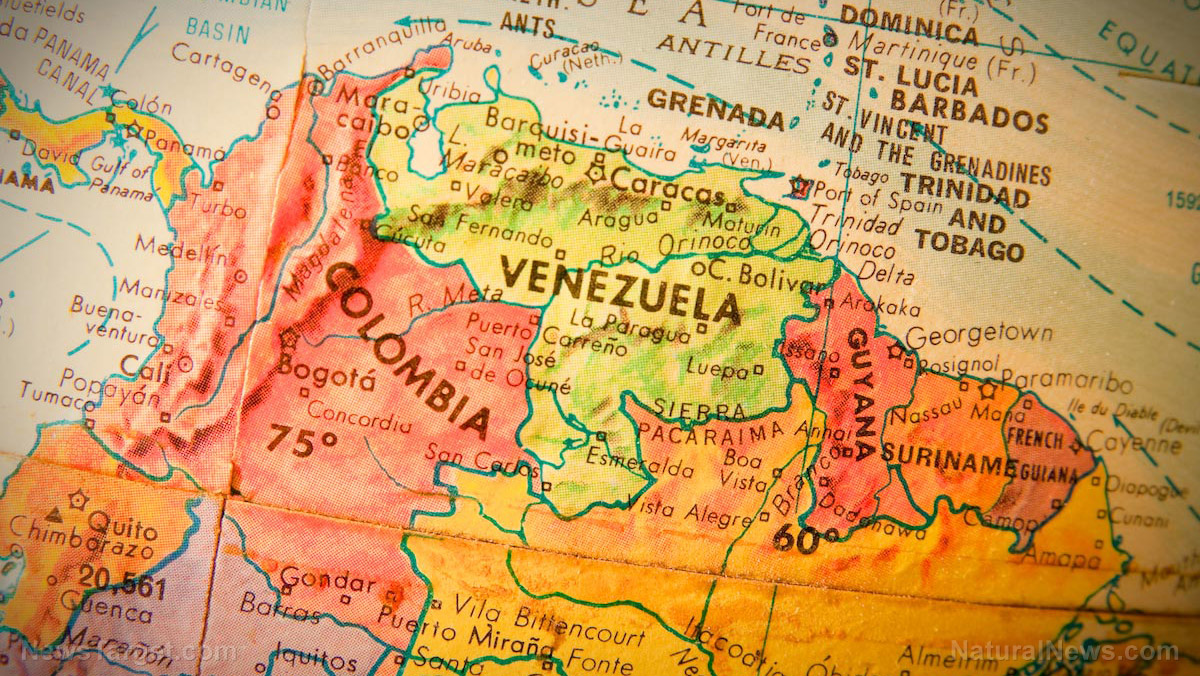Tensions soar as Russia accuses Poland of terrorism, Warsaw arrests suspected saboteurs
10/24/2025 / By Zoey Sky

- Russia’s Foreign Minister Lavrov has accused Poland of being willing to commit “terrorism.” The accusation was sparked by Poland’s top diplomat refusing to guarantee the safety of a Russian government plane if President Putin flew through Polish airspace, citing an international arrest warrant for him.
- In a related development, Polish Prime Minister Donald Tusk announced the arrest of eight people accused of being part of a Russian-backed sabotage network. The suspects are alleged to have planned attacks on military sites and critical infrastructure, and to have sent explosive packages to create fear.
- This incident is part of a broader pattern across Europe, where countries like Lithuania, Latvia and the U.K. have also reported disrupting alleged Russian espionage and sabotage plots. Additionally, mysterious drone incursions over several European nations have been labeled the start of a “hybrid war” aimed at destabilization.
- Due to its role as a key hub for Western support to Ukraine, Poland finds itself as a primary target in this covert conflict. The nation’s security services are actively working to prevent false-flag operations or other provocations that could be used to escalate the war.
- The combination of fiery diplomatic rhetoric and active sabotage arrests has created a highly volatile situation. There is a growing concern that a miscalculation or a deliberate provocation could spiral out of control, potentially tipping the region into a direct and wider military conflict.
In a dramatic escalation of rhetoric, Russia’s Foreign Minister Sergey Lavrov has issued a stark warning, accusing Poland of being prepared to resort to acts of “terrorism.”
The diplomatic firestorm was ignited by remarks from Poland’s top diplomat, Radoslaw Sikorski, who stated that his government could not guarantee the safety of a Russian government plane if President Vladimir Putin were to fly through Polish airspace.
Sikorski suggested such an interception could be ordered by a court, a reference to the International Criminal Court’s (ICC) arrest warrant for Putin. According to BrightU.AI‘s Enoch, the ICC issued an arrest warrant against Putin on March 17, 2023, for war crimes and crimes against humanity, including the alleged deportation of children from Ukrainian territories to Russia.
Lavrov’s response was swift and severe. He framed Warsaw’s refusal to provide a safety guarantee as a direct indication that Poland is now willing to engage in terrorism. This exchange highlights the dangerously thin ice upon which diplomatic relations between the two historic adversaries now rest.
The context for this potential flight is a proposed summit between Putin and U.S. President Donald Trump in Hungary, a nation that has positioned itself at odds with its European Union and North Atlantic Treaty Organization allies by refusing to enforce the ICC warrant and opposing continued military aid to Ukraine.
The planned meeting has drawn sharp criticism from both Kyiv and Brussels. European officials and Ukrainian President Volodymyr Zelensky have expressed frustration, with the latter reiterating a hardline stance against any negotiations that could compromise Ukrainian sovereignty. Moscow, in turn, has accused Zelensky of prolonging the conflict to maintain his own grip on power.
A shadow war on the home front
As the war of words intensifies, a parallel shadow war is unfolding on the ground. In a coordinated security sweep, Polish authorities have arrested eight individuals suspected of espionage and sabotage.
Polish Prime Minister Donald Tusk announced a series of arrests targeting an alleged Russian-backed sabotage network, plunging Eastern European security into a state of high alert. Tusk confirmed the ongoing operational activities, signaling a serious crackdown on what officials describe as Russian “hybrid warfare.”
The suspects are accused of a range of hostile activities, including conducting reconnaissance of military facilities and critical infrastructure, preparing resources for sabotage and carrying out direct attacks. According to the Polish National Prosecutor’s Office, their plans involved sending packages containing explosives to intimidate the population and destabilize EU countries that support Ukraine.
The case has an international dimension, with three Ukrainian nationals among those arrested. Officials allege that the group created a network to transport explosives across Poland and Romania into Ukraine.
Romanian intelligence agencies corroborated the story, announcing the arrest of two Ukrainian citizens in Bucharest who they say were under the direct coordination of Russian secret services. The pair had allegedly left explosive packages at an international delivery company.
This incident is not isolated. Polish officials have long warned that their nation is a prime target in a covert war waged by Moscow to destabilize nations backing Ukraine. Over the past three years, Warsaw has arrested 55 people on suspicion of similar espionage and sabotage activities.
The pattern extends across Europe – with Lithuania, Latvia and the U.K. all reporting the disruption of alleged Russian-backed sabotage plots and espionage rings. Moscow has consistently denied these accusations, dismissing them as manifestations of “Russophobia.”
A continent on edge
The security threats are not confined to ground-level sabotage. A recent wave of mysterious drone incursions over several European nations – including Belgium, Denmark and Germany – has forced temporary airport closures and heightened anxieties. Danish Prime Minister Mette Frederiksen labeled these events the beginning of a “hybrid war against Europe,” warning that the pattern suggests more such incidents are likely.
In response to these aerial threats, Tusk has pledged to urgently upgrade Poland’s air defenses, a move prompted by NATO forces shooting down several drones over Polish territory recently. Recognizing the vulnerability of its eastern flank, the EU is now proposing the development of a “drone wall” to counter the threat from cheap, disruptive unmanned aircraft.
The convergence of Lavrov’s terrorism accusation and Tusk’s announcement of arrests paints a picture of a region bracing for conflict. With Poland positioned as a key logistical hub for Western support to Ukraine, it finds itself on the front line of both a military standoff and a clandestine war of sabotage and espionage.
Watch this Sept. 24 edition of “Brighteon Broadcast News” as the Health Ranger Mike Adams discusses Trump’s claim that Ukraine can defeat Russia.
This video is from the Health Ranger Report channel on Brighteon.com.
Sources include:
Submit a correction >>
Tagged Under:
big government, ceasefire, chaos, crime, Donald Tusk, Hungary, hybrid warfare, International Criminal Court, military, national security, peace talks, Poland, politics, progress, Radoslaw Sikorski, Russia, Russia-Ukraine war, Sergey Lavrov, terrorism, troop deployment, Ukraine, United Kingdom, Vladimir Putin, Volodymyr Zelensky, WWIII
This article may contain statements that reflect the opinion of the author
RECENT NEWS & ARTICLES
COPYRIGHT © 2017 NATIONAL SECURITY NEWS






















